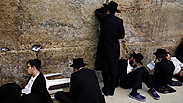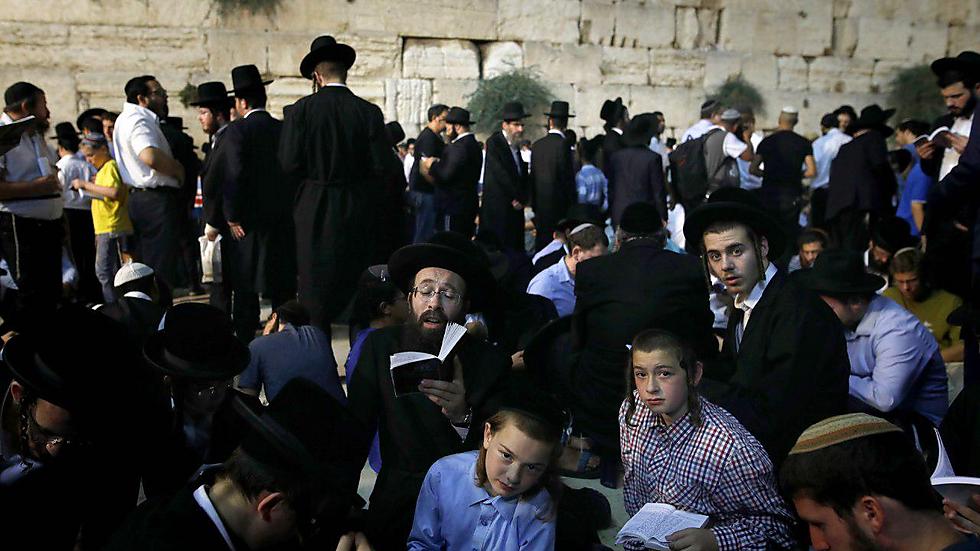
Worshipers praying at the Western Wall in Jerusalem at the start of the Tisha B'Av fast
Photo: AFP

Hanoch Daum
Photo: Itzik Biran
I admit that, like most Israelis, I don’t miss the Temple. Personally, my life is good even without making offerings. But the deep truth is that Tisha B’Av
is a sad day for me too, and I can’t even explain why.

Rabbi Kook wrote that times have an essence, that there are dates with a bitter nature. It’s a mystical saying which I have no way of proving, but I feel connected to it.
The thing about Tisha B’Av, in my eyes, is that the easiest thing is to talk about the Temple. After all, it’s relevant: A few days ago, a war nearly broke out over metal detectors placed at the entrance to the Temple Mount. But I was raised in the home of a rabbi who was a pronounced student of Rabbi Zvi Yehuda Kook, and it was clear to us that it is forbidden to visit the Temple Mount. And in my eyes, the reality in the Temple Mount has nothing to do with this day.

The easiest thing on Tisha B’Av is to talk about the Temple, but the reality of the Temple Mount has nothing to do with this sad day (Photo: AFP)
So why do I feel so sad? Because while I have no yearning for the Temple, I feel the unfounded hatred that preceded its destruction on a daily basis, and it’s growing, deepening its hold on our discourse, and every side of Israeli society shares an equal part in the blame for it.
Instead of preaching about unfounded love and tolerance, I would like you to read together one of the exegetical texts of the destruction, which can be found in Tractate Gittin. Like in the famous story of Kamsa and Bar Kamsa, there are no national affairs and external enemies here, just a horrible tragic wretchedness we reached in the days before the Second Temple’s destruction.
I can’t overemphasize the sadness that this story unleashes in me every time I read it. And although it’s not an acceptable thing in this medium, I’m going to let the story (translated from Aramaic) echo itself, without adding any further interpretation, and each person can take it where they want.
“A certain man once conceived a desire for the wife of his master, he being a carpenter's apprentice. Once his master wanted to borrow some money from him. (His apprentice) said to him: Send your wife to me and I will lend her the money. So he sent his wife to him, and she stayed three days with him. (His master the carpenter) then went to him before her. 'Where is my wife whom I sent to you?' he asked. The carpenter's apprentice replied, 'I sent her away at once, but I heard that the youngsters played with her on the road.' 'What shall I do?' asked the carpenter. 'If you listen to my advice,' he replied, 'divorce her.' 'But,' he said, 'she has a large marriage settlement.' Said the other: 'I will lend you money to give her for her Kethubah.'
“So he went and divorced her and (the apprentice) went and married her. When the time for payment arrived and he was not able to pay him, he said, 'Come and work off your debt with me.' So they used to sit and eat and drink while he waited on them, and tears used to fall from his eyes and drop into their cups. From that hour the doom (of Jerusalem’s destruction) was sealed.”
















